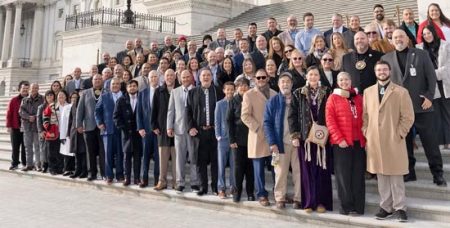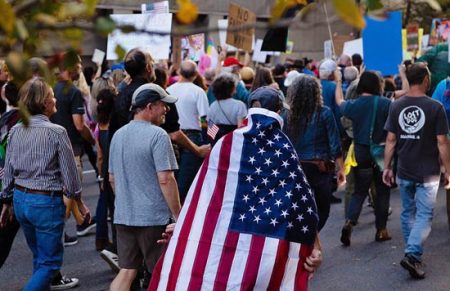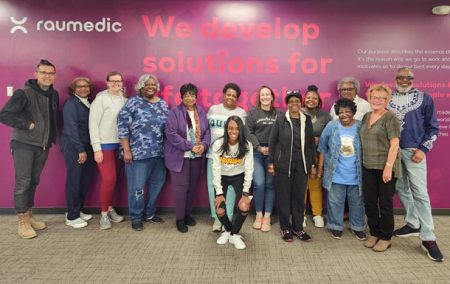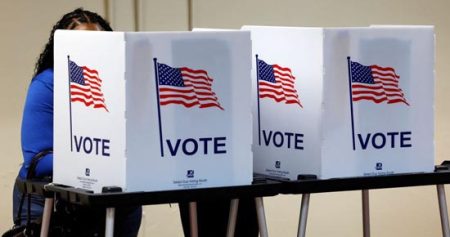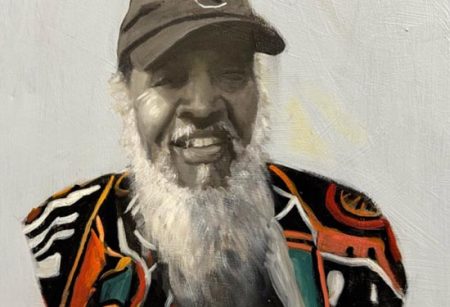Artifacts Will Remain on View at Smithsonian Museums
The Woolworth’s lunch counter from Greensboro, North Carolina will continue to be on display.
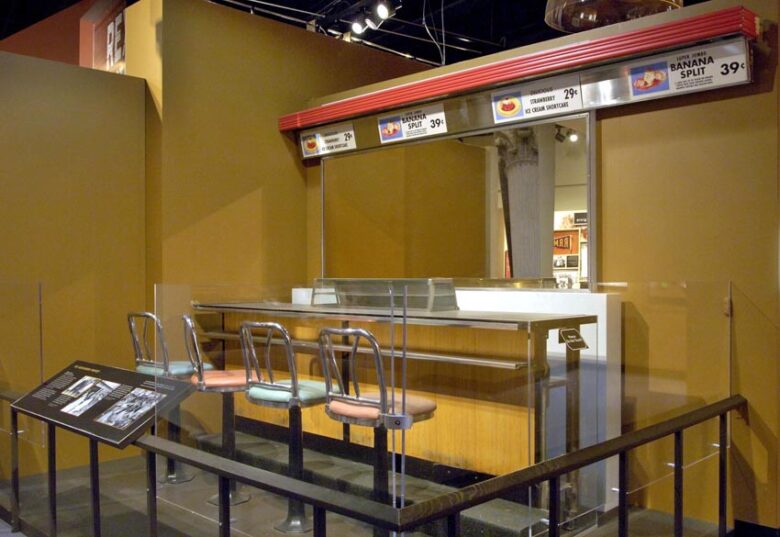
Recent reports about the Smithsonian removing the historic Greensboro, North Carolina, lunch counter and a stool from the National Museum of American History and National Museum of African American History and Culture, respectively, are inaccurate.
Both the Greensboro lunch counter and stools where college students sat in protest during the Civil Rights Movement are and continue to be on display. A stool from the sit-ins remains on view at the National Museum of African American History and Culture as the centerpiece of an interactive exhibition.
The larger section of the Greensboro counter also remains on display at the National Museum of American History. Suggestions that the Smithsonian had planned or intended to remove these items are false.
Further, the Smithsonian routinely returns loaned artifacts per applicable loan agreements and rotates objects on display in accordance with the Smithsonian’s high standards of care and preservation and as part of our regular museum turnover. Recent claims that objects have been removed for reasons other than adherence to standard loan agreements or museum practices are false.
As the steward of our nation’s treasures and history, the Smithsonian preserves and protects all objects and artifacts in its collection to ensure their long-term conservation, and to safeguard them for future generations.
Greensboro Lunch Counter
On February 1, 1960, four African American college students—Ezell A. Blair, Jr. (now Jibreel Khazan), Franklin E. McCain, Joseph A. McNeil, and David L. Richmond—sat down at this “whites only” lunch counter at the Woolworth’s store in Greensboro, North Carolina, and politely asked for service. Their request was refused, and when asked to leave, the students remained in their seats in protest.
For the six months that followed, hundreds of students, civil rights organizations, churches, and members of the community joined the protest and boycotted the store. Their commitment ultimately led to the desegregation of the F.W. Woolworth lunch counter on July 25, 1960. Their peaceful sit-down was a watershed event in the struggle for civil rights and helped ignite a youth-led movement to challenge racial inequality throughout the South.
For more information, please visit americanhistory.si.edu/explore/exhibitions/greensboro-lunch-counter.

